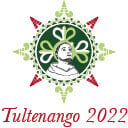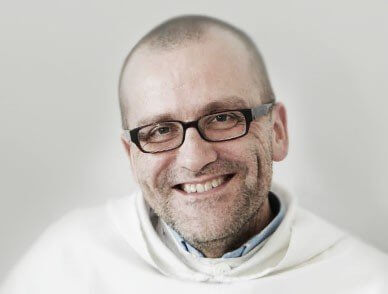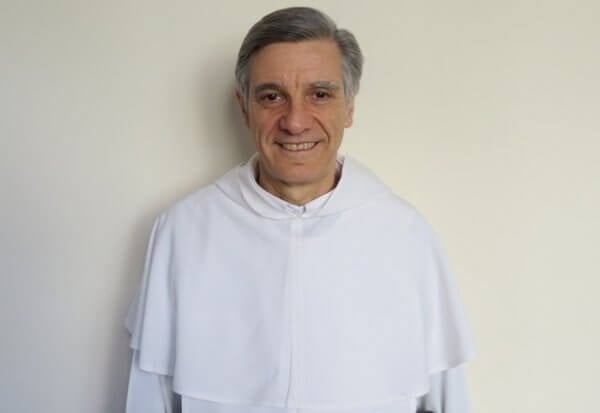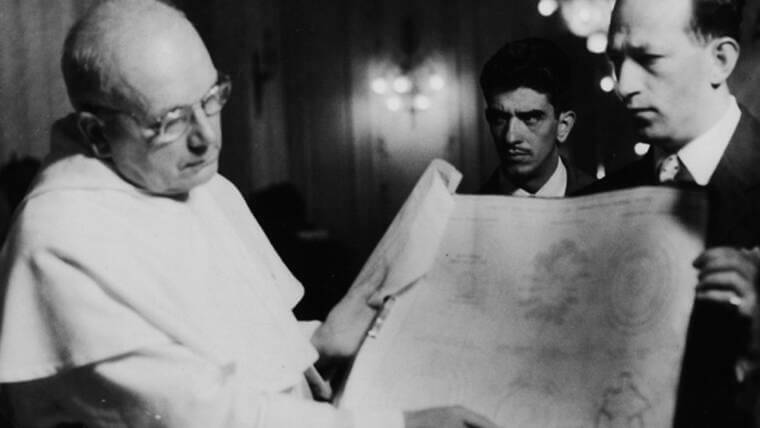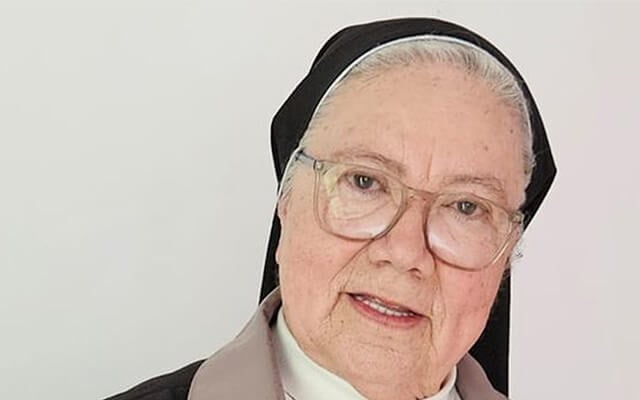
Sister Rosmery Castañeda M., a Dominican Sister of the Dominican Sisters of Charity of the Presentation, has been selected by Pope Francis to participate in the Synod on Synodality. She is the only woman from the Order of Preachers attending this 16th Ordinary General Assembly of the Synod of Bishops, entitled “For a Synodal Church: Communion, Participation and Mission”, which is being held in Rome from 4 to 29 October.
The Synod on Synodality, convened by Pope Francis, stands at a crucial place for the Catholic Church, in which religious leaders from around the world gather to address fundamental issues impacting contemporary religious faith and practice. In this extraordinary context, Sister Rosmery Castañeda is one of 54 women, both religious and lay, who will make history by voting for the first time in a synod with 364 voting members.
Sister Rosmery is a theologian and a teacher of Theology and Scripture. Born in Colombia and living in Panama, her selection for the Synod is a well-deserved recognition of her love for the Church and her work of evangelisation. Her continuous work in the Archdiocese of Panama throughout the first stage of the Synod was a good preparation for her contribution to this assembly. She has a YouTube channel dedicated to evangelisation and also has an important presence in other social networks (@rosmery.op).
The following interview, conducted in September, explores Sister Rosmery Castañeda’s perspective and her expectations with regards to her role in the Synod on Synodality. The conversation looks at her aspirations for the future of the Church and her focus on meeting the challenges facing the institution in the 21st century.
Interview
How did you come to be elected to participate with a voice and vote in something as important as a Synod of Bishops?
That is the question I asked myself when I heard my name among the ten women of the Latin American continent. It is not due to my own merit, it is a “smile from God.” I saw it as a gift of the Latin American Church itself, which knows me well for my constant participation in the evangelisation of our peoples. Moreover, in this journey together as a synodal Church, I am a member of the theological panel of the coordinating team of the Synod on Synodality for the Episcopal Conference of Panama. I also participated at the continental level in the CAMEX Region (Central America and Mexico).
What does it mean for you to participate in this synodal process as a representative of religious life and the Dominican Family?
For me it is both a call and a sending. A call, because I am a Dominican, I love the Church, I live in her and I am aware of the contribution to the Church given by our Dominican fathers, “teachers and guides” who lived and acted in critical moments of the Church. Pope Benedict XVI (who hopefully now enjoys the Glory of God) told us when speaking of the saints of the mendicant orders, “teachers with their words and witnesses with their example, they can encourage a stable and profound ecclesial renewal because they themselves are profoundly renewed.” (Audience of 13 January 2010) Participating in the Synod is also a sending forth if we take seriously the synodal challenges that seek to give a new face to the Church.
What contributions and challenges do you think this Synod has for the life and mission of the Church today?
To be a missionary Church going out, close, listening, participative, always in dialogue, with openness to all, we need to be open without discriminating; a poor, humble, inclusive Church, where no one is left out. Today the Church urges the presence of women in leadership on many pastoral fronts and in decision-making. According to Lumen Gentium, to be the Church is to be the people of God, open to new non-ordained ministries, thanks to the gifts and charisms that the Holy Spirit pours out on all the baptised.
What experiences of synodality have you experienced or are you experiencing in your community and in your relationship with other ecclesial realities?
The experiences lived in this synodal journey at the parish level (because we started at the local and moved to the universal level), diocesan, national and regional level in Central America and Mexico have been wonderful. How much I would like to share with you the ecclesial and missionary testimonies that I have received as a participant in this Synod on Synodality. Listening “has been the most beautiful apprenticeship and has directed my life along the paths of the Gospel.
And how can I not speak to them at the level of my community? We took up again the synodal path from our charism and confirmed that the principles of the Dominican charism and those of our congregation are synodal, missionary and participative. It has impelled us to look for new ways to bring the mission to the frontiers, to be communities that frequently make use of spiritual conversation as a method in the Synod to discern in the Spirit and give answers consistent with what we want to be.
What are your expectations for the Synod on Synodality and how are you preparing for it?
I am very hopeful about what we are going to experience as synodal mothers and fathers, trusting in the Holy Spirit, who is the one who leads and marks every step of the Church. The greatest preparation is prayer, the Word of God as strength and light to discern the path that God wants for his Church. I think of St. Catherine of Siena, whom I admire when she made her mark in history in favour of the Church. The words of Marie Poussepin, my foundress, also beat in my heart: “Where the Church calls us and our brothers and sisters need us.”
How can prayer, study and preaching help in the synodal journey?
In the Order, we always talk about the prayer of St. Dominic. We can put it into practice in these ecclesial moments…. We have enemies of the Synod and we need to pray. It is prayer that opens and breaks down walls. Study helps us to show others and our audiences that, from the beginning of the People of Israel, the assemblies were participatory and the Acts of the Apostles show us that the early Church was a “walking together” (understanding walking together as listening to each other, dialogue and discernment together). Antonio Montesinos’ style of preaching is a priority today: to defend those we have excluded, to do justice for those who suffer, to accompany, welcome and humanise migrants, to be preachers with a synodal heart and a social sense.
What about the Order of Preachers’ system of governance?
The Synod on Synodality is speaking to us of a more participatory government, more listening, less clericalism, with respect for the voice of the laity and of women. A government where decisions have passed through the Assembly and where the voices of all are taken into account.
What message would you like to convey to the Dominican Family around the world and to the faithful following this synodal process?
I invite you to live this Kairos of God, it is a whole Pentecost that is being lived in the Church, and to immerse ourselves in the synodal waters to which we are invited.
Synodality
Synodality denotes the particular style which qualifies the life and mission of the Church, expressing its nature as the People of God walking and gathering in assembly, called together by the Lord Jesus in the power of the Holy Spirit to proclaim the Gospel. Synodality must be expressed in the Church’s ordinary way of living and working.
Synodality, from this point of view, is much more than the holding of ecclesial meetings and episcopal assemblies, or a matter of simple internal administration within the Church; it is the specific modus vivendi et operandi of the Church, the People of God, which reveals and gives content to its being as a communion when all its members walk together, gather in assembly and actively participate in its evangelising mission.
Objective of this Synod
This Synod is intended to be a synodal process. The aim of this synodal process is not to provide a temporary or one-time experience of synodality, but rather to offer an opportunity for the whole People of God to discern together how to move forward on the path to becoming a more synodal Church in the long term.
A fundamental question will drive and guide us: How does this journey together enable the Church to proclaim the Gospel in accordance with the mission entrusted to it and what steps does the Spirit invite us to take in order to grow as a synodal Church?
Pope Francis’ intention is that the whole Church should participate in the search for methods towards synodality: that is, to ensure that, in a real and effective way, all the baptised, Pope, bishops, priests, consecrated and lay people walk together in communion and fraternity.
Sister Rosmery Castañeda
Originally published on 26 September 2023 by: https://www.dominicos.org/noticia/entrevista-rosmery-castanada-sinodo/

